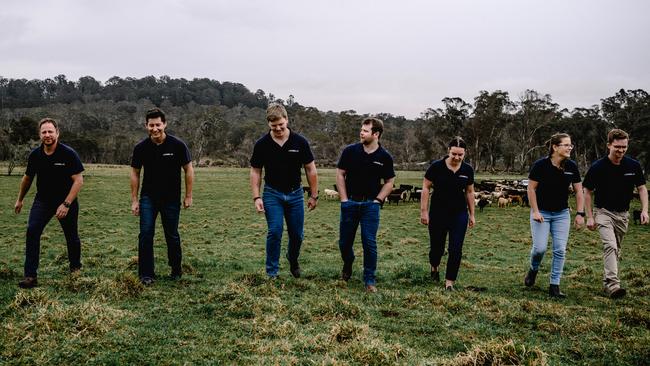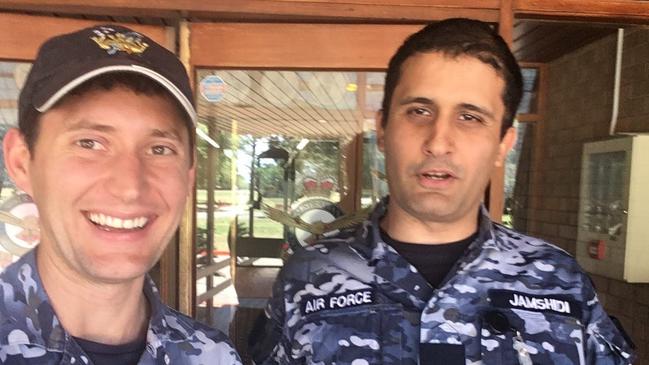AI in agriculture? The sky’s the limit
Artificial intelligence is helping businesses and scientists assess everything from carbon capture to taint from bushfire smoke and to explore new avenues to growth.

An electronic “nose” to test the taint of bushfire smoke in your vineyard? How about using AI to brew beer on the moon?
It seems the sky is the limit when it comes to technology and agriculture, as Australian scientists, entrepreneurs and farmers innovate with food production and land management.
Technology is already embedded in farms through a range of products, from sophisticated instruments that report on weather and soil on farms to harvesters that steer by satellite navigation.
This is an article from The List: Innovators 2024, which is announced in full on October 18.
One growth area already yielding dollars to farmers is the development of carbon credits sold to corporations to offset greenhouse gas emissions. There are now dozens of advisers in the market. One of the biggest is consultancy FarmLab, based in Armidale, NSW.
“We’re one of Australia’s largest soil carbon projects,” says CEO and co-founder Sam Duncan.
“We have a huge dataset around soil carbon, so it’s useful for emissions reduction projects and a lot of large research projects … (it allows them) to measure carbon across the country.”

Duncan estimates FarmLab has about 20,000 samples to work with across 80 farms in each state, making about 500 farms in total.
By marrying the samples with satellite imagery, FarmLab is able to use AI as a predictive tool to measure soil carbon, and new regulations mean its client base is growing.
“With corporate clients, we have mandatory emissions reporting coming soon, and a lot of businesses have farmers in their supply chains,” Duncan says.
“So we’ve been using these models with artificial intelligence and machine learning to help the corporates see where they can put more carbon in the soil.
“One of the things we’ve been able to do is to let the AI do the talking. With that independence, we collect good data and the way we use the AI it does the work and figures out whether carbon is high or low. There’s no looking at a map and saying ‘I think’ – it’s a blunt tool and it lets us know what’s what.”
FarmLab has Treasury Wine Estates and Impact Ag Partners, led by former AACo boss Hugh Killen, among its clients.
The idea for FarmLab came to Duncan and business partner Shahriar Jamshidi when they were serving in the air force.
“I was seconded to the UN, working in South Sudan,” Duncan says. “We were seeing a lot of the impacts of changing climate on the local population.
“I left (the air force) because of FarmLab in 2017. We were doing it part-time, but we got some big grants. If we can get the data off the ground and into the computer, we can assist with farm management. AI has come a long way and is a great tool for us.”
The initial capital for FarmLab came through grants via the University of Sydney. Duncan and Jamshidi then found there were commercial opportunities in carbon sequestration, with clients needing a software platform to assist in carbon measurements.
FarmLab’s initial $500,000 investment came from venture capital fund Artesian Investments to assist with building the software. A seed round raised $750,000 from investors, then a second seed round brought in $1.1m of capital. FarmLab will soon be going into a Series A funding round as it attempts to reach scale in the US.
Co-founders Duncan and Jamshidi own 61 per cent of the company, with the rest distributed among investors.
Duncan says it’s an interesting time to be operating in the agtech sector. “There have been a lot of high-funding agtech start-ups raise money and face challenges.”
FarmLab has 16 part and full-time workers, with some based in Denver, Colorado. as part of its efforts to get its research into the US market. The company is sampling soil carbon in Montana and Colorado, and clients include an Amish community.
FarmLab has begun pilot projects in Tasmania, with smaller operations using its tools to register carbon capture programs. Programs are free and the company makes money from an administration fee if the client signs up for a soil management plan.

At the University of Melbourne, associate professor of digital agriculture and food sciences Sigfredo Fuentes says there are many possible applications for AI in the agricultural sector.
His research group has used AI to assess, for example, not only plant life, but also animal welfare, as well as – on a consumption and marketing front – the physiological reactions people have to different produce.
“We were the first to propose assessing physiological changes when people see different products,” Fuentes says. “Using video we measured heart rate, blood pressure and facial expression.”
He explains there are endless applications of AI in agriculture, only “limited by what you want to do”. Among them is the “electronic nose” he and his team developed after the 2022 bushfires to assess smoke taint in wine grapes.
“There were a lot of smoke taint problems after the bushfires and so we developed this electronic nose to assess the level of contamination in grapes before harvest,” he says. Along with five other universities, Professor Fuentes’ team at the University of Melbourne is also part of a $32m research project developing AI to grow plants and even make beverages on the moon.
“We are applying all the AI we have developed over the years to assess food and beverages for space production,” he says. “In 2026, they’ll be growing plants on the moon and we’re part of that experiment.”
Fuentes says his team began developing models using deep learning and machine learning in agricultural applications a decade ago.
“We started with plants and animals,” he says. “Plants are easier to measure because they don’t move, but when you move to livestock, to assess welfare, it’s harder.” Plants are monitored to see how much water they need, while algorithms are used to assess the heart rates and blood pressure of animals.
Fuentes says growers around the world dismiss AI because they wrongly think it’s too expensive. “You don’t need much know-how for AI to work,” he says. “Any person can use ChatGPT. They don’t need to know how it works to use it well.”
FarmLab’s Duncan says the pivot in the industry is not without its issues. “It’s an interesting time in agtech,” he says. “There have been a lot of high-funding agtech start-ups raise money recently and face challenges.”
FarmLab has 16 part- and full-time workers, with some based in Denver, Colorado as part of its efforts to get its research into the US market. The company is sampling soil carbon in Montana and Colorado, and clients include an Amish community. This work is performed through an intermediary, since the Amish have rules against the use of technology.
FarmLab has also begun pilot programs in Tasmania, with smaller operations using its tools to register their own carbon capture programs. Programs are free and the company makes money from an administration fee if the client signs up for a soil management plan.




To join the conversation, please log in. Don't have an account? Register
Join the conversation, you are commenting as Logout